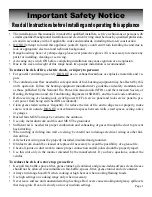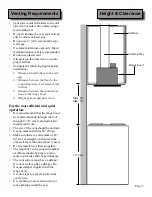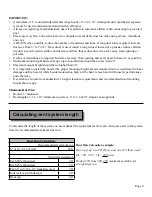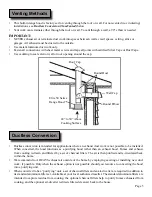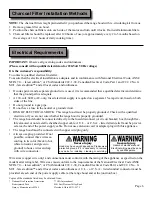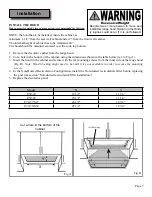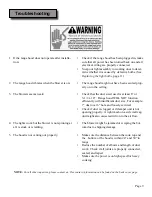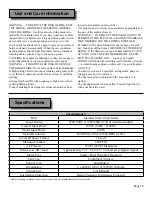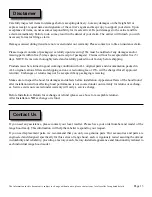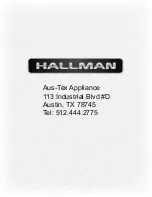
Page 5
Venting Methods
This built-in range hood is factory set for venting through the roof or wall. For non-vented (re-circulating)
•
installations, see
Ductless Conversion (Non-Vented)
below.
Vent work can terminate either through the roof or wall. To vent through a wall, a 90° elbow is needed.
•
IMPORTANT:
NEVER exhaust air or terminate duct work into spaces between walls, crawl spaces, ceiling, attics or
•
garages. All exhaust must be ducted to the outside.
Use metal/aluminum duct work only.
•
Fasten all connections with sheet metal screws and tape all joints with certified Silver Tape or Duct Tape.
•
Use caulking to seal exterior wall or roof opening around the cap.
•
Ductless Conversion
Ductless conversion is intended for applications where an exhaust duct work is not possible to be installed.
•
When converted, the hood functions as a purifying hood rather than an exhaust hood. Fumes and exhaust
from cooking is drawn and filtered by a set of charcoal filters. The air is then purified and re-circulated back
within the home.
We recommend to ALWAYS exhaust air outside of the home by employing existing or installing new duct
•
work, if possible. Only when the exhaust option is not possible should you recourse to converting the hood
into a purifying unit.
When converted to be a “purifying” unit, a set of charcoal filters and an air-diverter are required in addition to
•
its standard aluminum filter set. Available at your local authorized reseller. The standard aluminum filters are
intended to capture residue from cooking, the optional charcoal filters help to purify fumes exhausted from
cooking, and the optional air-diverter redirects filtered clean air back to the house.
Round Duct
Wall Cap
Round Elbow
Roof Cap
24” to 30” Above
Cooking Surface
Elite 50 Series
Range Hood


